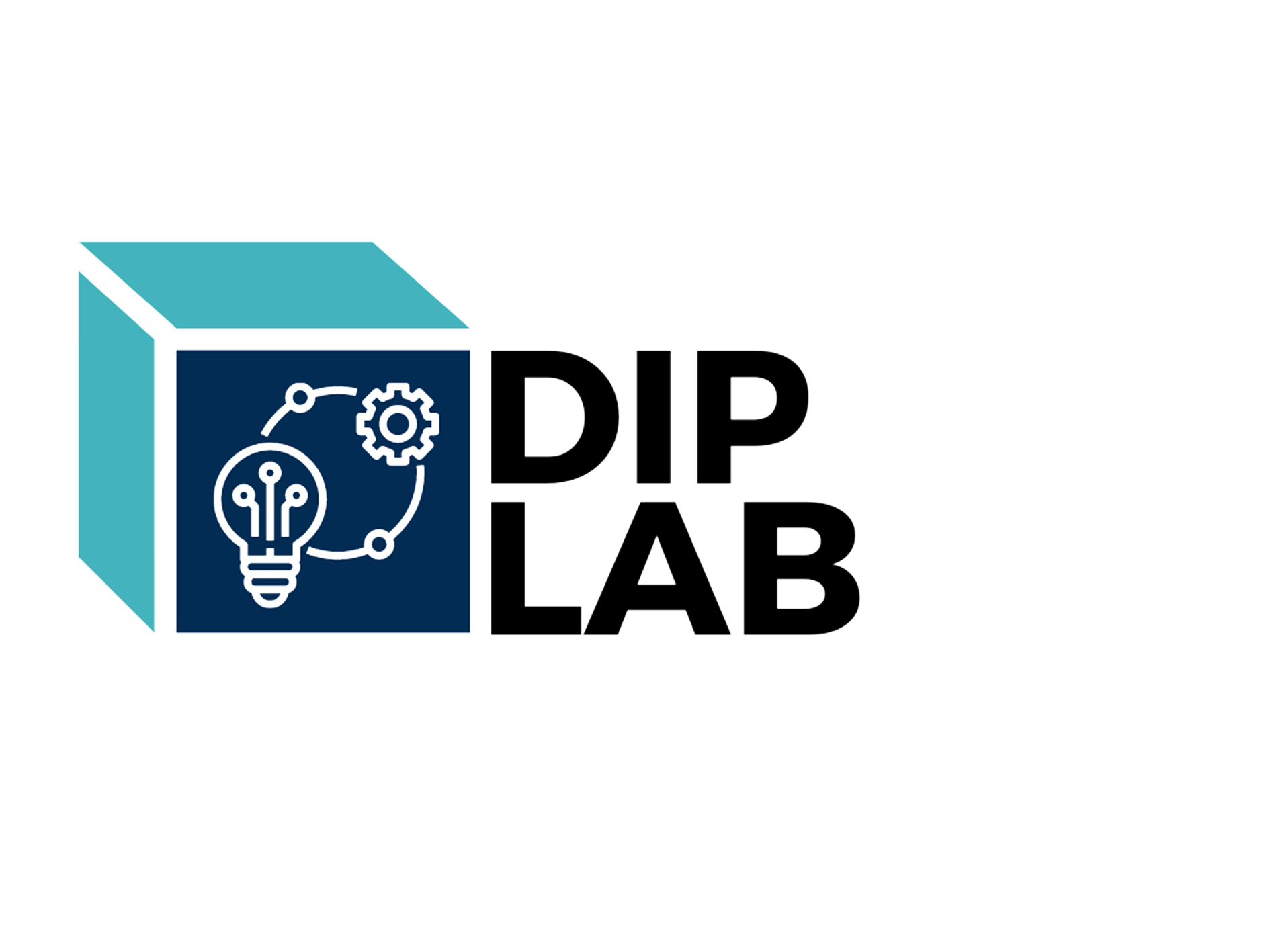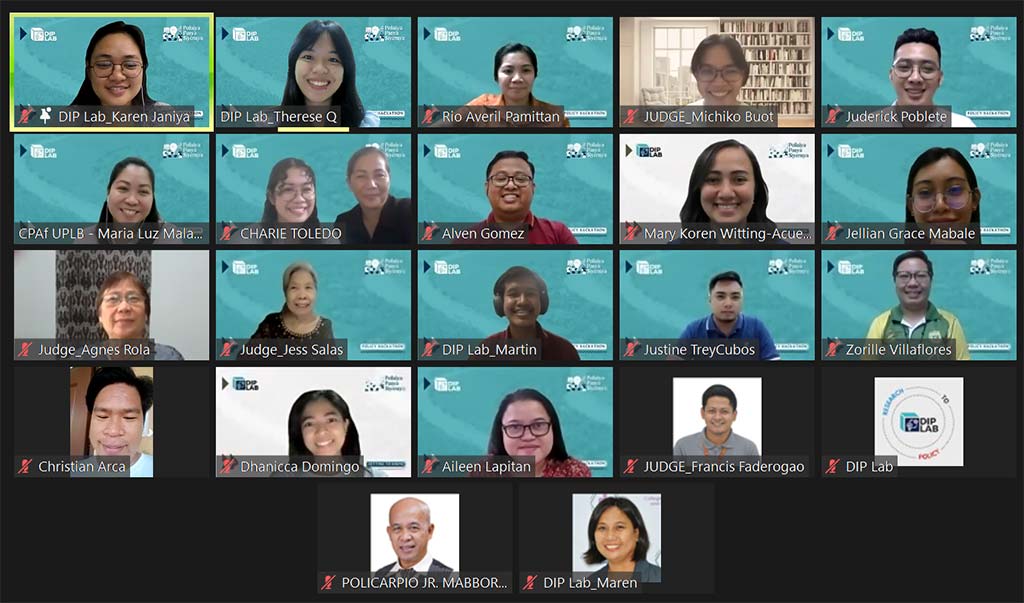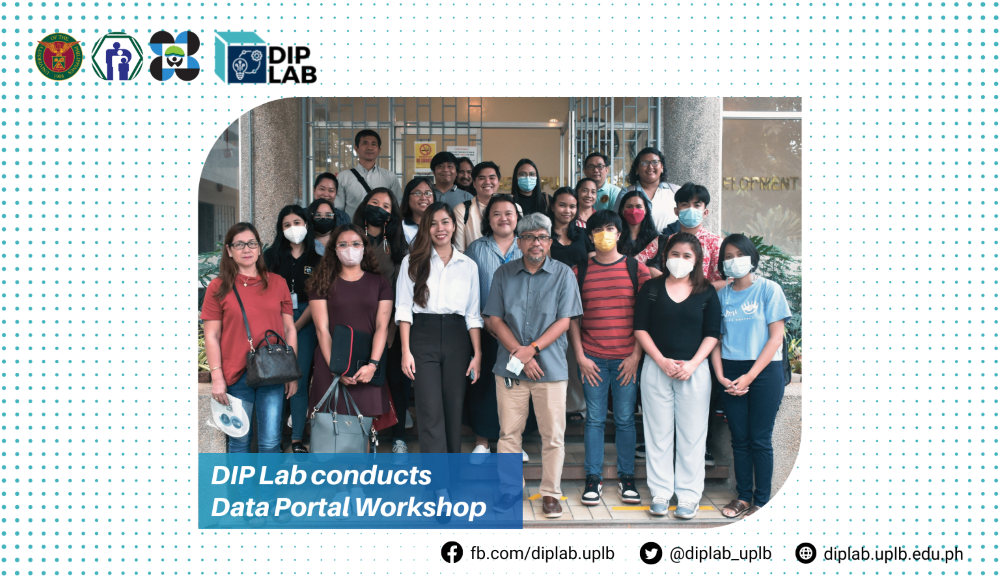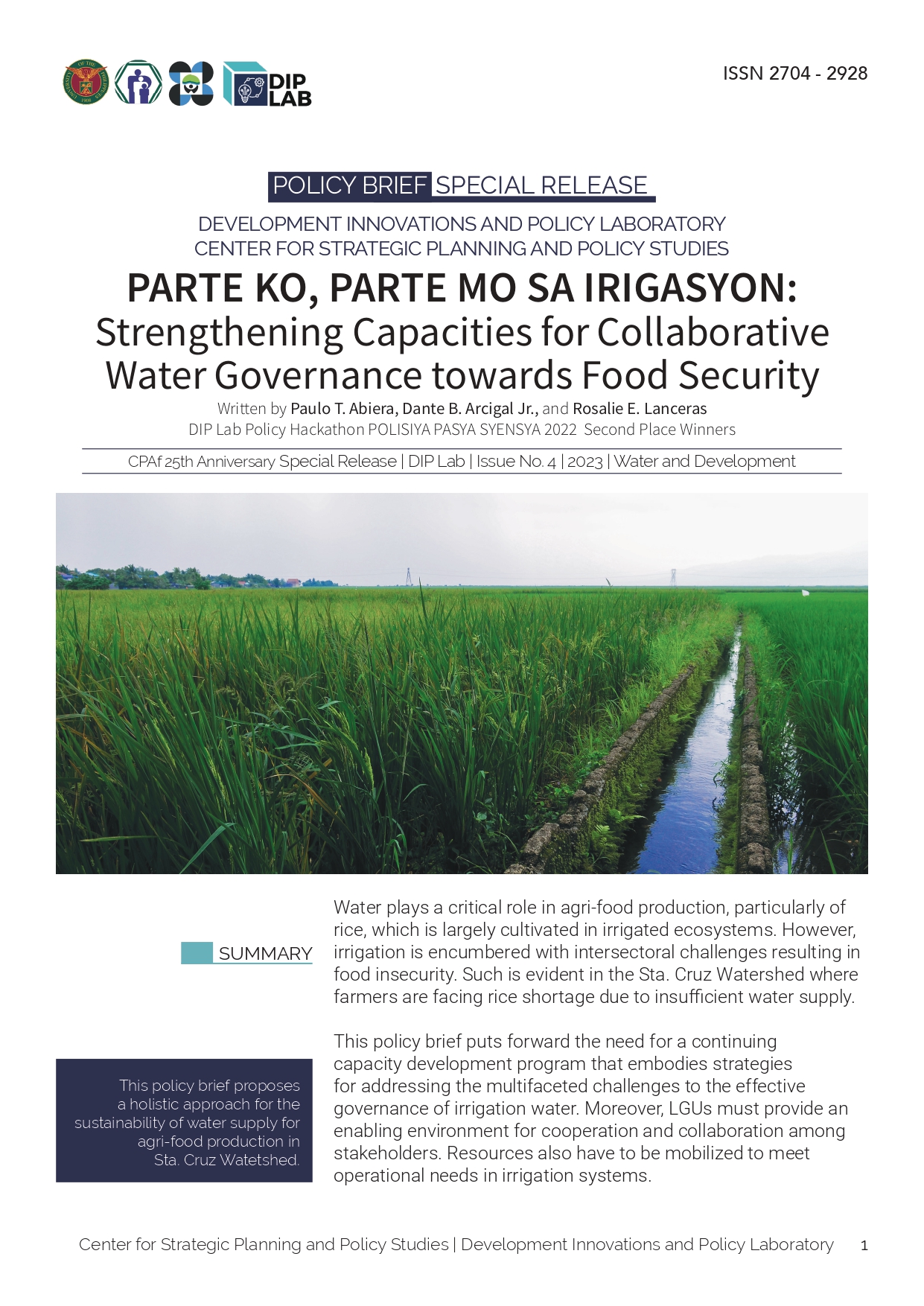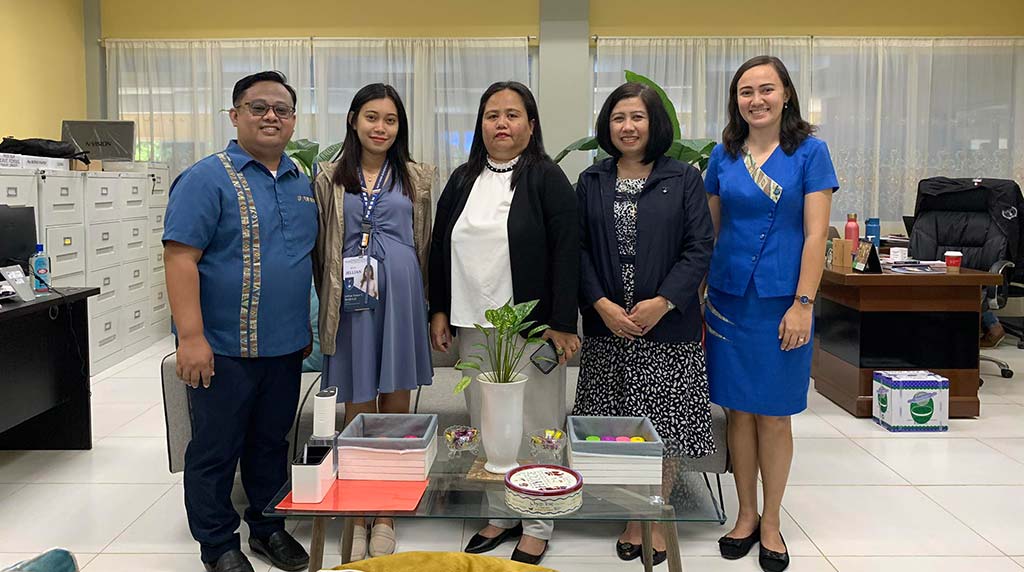
Northern Bukidnon State College team together with NBSC President. Standing from left: Mr. Alven L. Gomez, Ms. Jellianne Grace C. Mabale, Ms. Cherry Fe Amor Q. Magallones, Dr. Catherine Roween C. Amaden, and Dr. Mary Koren Witting-Acuesa
In an inspiring display of confidence and determination, the Northern Bukidnon State College emerged as champions of the Development Innovations and Policy Laboratory’s (DIP Lab) virtual policy hackathon held last December 13 & 14, 2023. The team’s ingenuity and strategic acumen depended on its team members composed of Dr. Mary Koren Witting Acuesa, NBSC Internationalization and Income Generation Program Director, Mr. Alven L. Gomez, NBSC Extension Director, Ms. Jelliane Grace C. Mabale, NBSC Faculty, and Ms. Cherry Fe Amor Q. Magallones, Municipal Planning and Development Coordinator of LGU Manolo Fortich.
In an interview by DIP Lab Project Staff For. Martin Raphael Advincula to the winning NBSC team, they shared that the composition of their team was carefully thought out by their president, Dr. Catherine Amaden. “Ma’am Jellian and I are on the environment side, Dr. Koren is the best when pitching the policy, and Ma’am Chepay has all the data that we need on Tagaloan River Basin.” said Gomez.
Yet, it was not as smooth-sailing as they thought it would be, juggling different roles and responsibilities within their educational institutions and stationed in various offices, found it challenging to synchronize seamlessly. There were tendencies that they forget about the schedule, but the group chat that they created helped so that they could communicate. “Prior to the hackathon proper, a lot happened in school and the attention was only focused an hour or 2 hours prior to the event proper. So it’s more of commitment as well, if you are committed to do the job regardless of the many other distractions, we still have time to work on what is supposed to be worked for.” Witting-Acuesa said. Often, bumpy roads lead to beautiful places.
Coming into the policy hackathon proper, their primary focus was not centered on winning prizes; rather, their collective goal was to deliver a presentation that would reflect their institution in the best possible light. “As we gathered to rehearse and prepare for potential questions during the pitching session, we realized that our motivation surpassed monetary rewards. It was about taking pride in representing our school and the community of Manolo Fortich. The prizes, though appreciated, were considered secondary, especially given the high caliber of participating state universities and colleges” Gomez explained.
Their policy briefs emphasized the preservation of water quality and ecosystem well-being in the Tagoloan River Basin, which reflected the four-fold functions of the state college. Dr. Witting-Acuesa underscores the institution’s role extends beyond instruction to encompass research and extension, benefiting not only students but also the broader community. In alignment with this ethos, especially within the academic realm, Mr. Gomez stressed that the primary responsibility is to instill in students a sense of social responsibility, that education should not only equip students with knowledge but also empower them to contribute to their community and the environment.“I think the key takeaway in the policy hackathon is that we will be able to teach college students about policymaking, especially those taking environmental science courses, so that they may be able to help our community in their own little ways.” Gomez added. Both he and Ms. Jellian Mabale specialize in environmental science, and the policy hackathon gave the idea of potential assessments suitable for students that possess the ability to generate prompt solutions to environmental issues and their direct communities.
The moment of victory was a vivid and emotional experience for the team. As they were physically gathered for the announcement of winners, Mr. Gomez described the atmosphere was akin to a Miss Universe pageant, with loud cheers and delight as they heard their institution’s name being proclaimed as winners. Dr. Witting-Acuesa recounted the night before, a flurry of virtual finalizations, and the ensuing nerve-wracking moments during the presentation and panel assessment. The unexpected joy of winning, the spontaneous celebrations, and the overwhelming support from the NBSC community created an unforgettable moment. From the perspective of Ms. Magallones, despite the desire for more data and field investigations, the limited time compelled a focus on aggressive execution and implementation.“There is something lacking and missing because supposedly, research and policy making should be strong right from the very start, and that is why it became weak from the implementation and execution. That is always our realization and we are glad that NBSC is relentless in helping the community.” said Magallones. Lastly, Ms. Mabale expressed the team’s initial lack of expectations due to the pressure and time constraints but highlighted the lesson learned—crafting a clear policy brief with actionable recommendations.
In reflecting on the journey, the team members shared valuable lessons and insights. Dr. Witting-Acuesa emphasized the importance of giving one’s all to any task, as the impact might be more significant than anticipated. She stressed the fleeting nature of opportunities and the need to make the most out of them, highlighting NBSC’s commitment to approaching tasks with diligence and wholehearted dedication. Sir Alven Gomez underscored the strategic selection of team members by the president and expressed pride in being part of what he considers the best team ever. “It’s an opportunity to be in the same team with Dr. Koren, Maam Jellianne, and Maam Chepay and I couldn’t wish any team to be with than them.”said Gomez. Ms. Mabale echoed this sentiment, emphasizing the exceptional skills each team member brought to the table, fostering a collaborative environment during the first pre-event. Meanwhile, Ms. Magallones, representing the LGU perspective, anticipated the team’s success. She expressed that “Ordinary people does not appreciate policy research and policy making but they don’t realize that if you really want a sustainable program or project for the community, you need to start with strong research.” The collaboration between the LGU and the academe was acknowledged as a powerful force for effective and heartfelt work.
The team also expressed that, despite being conducted in a virtual format, the policy hackathon served as a valuable learning experience and an opportunity to gain insights from individuals with greater knowledge and experience, which felt like a collaborative effort between different universities.
Finally, the team members shared their reflections on the policy hackathon, each conveying a unique perspective. Dr. Mary Koren Witting-Acuesa introduced the mantra “non multa, sed multum” or “not many, but much,” emphasizing the team’s strength lying not in numbers but in the depth of expertise and character of each member. Mr. Alven Gomez expressed gratitude to the DIP Lab for organizing the hackathon, highlighting NBSC’s commitment to their guiding mantra of creating futures and transforming lives, guided by their faith. Representing LGU Manolo Fortich, Ms. Cherry Fe Magallones extended appreciation to NBSC for choosing the municipality as a partner, assuring that any recommendations from the policy brief would be prioritized in their development projects. Ms. Jelliane Grace Mabale echoed the team’s collective encouragement to find opportunities in challenges, aiming to create positive change. Looking ahead to the dissemination of the policy brief, the team expressed hope that its impact would extend to a wide audience.
Written by MR Advincula.
